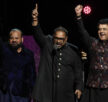Jallikattu – Tamil Nadu’s bull taming tradition banned in India
- 8th May 2014
- POST IN :CULTURE
Should we mourn the ban of this centuries old Tamil Nadu rural tradition, or be proud to see the end of what many call a barbaric sport, practiced in modern day South India?
For years animal welfare activists have been fighting to ban Jallikattu (taming the bull), a centuries old, annual bull fighting festival celebrated as part of the Pongal festival on Mattu Pongal day in Southern India, in which a team of men chase the bulls to grab prizes tied to their horn.
On Wednesday 7th May 2014, the Supreme Court prohibited the use of bulls in the Jallikattu Festivals. A bench led by Justice KS Radhakrishnan said that the bulls were “severely harmed” and it was an offence under the Prevention of Cruelty to Animals Act.
“Bulls cannot be used as performing animals, either for the Jallikattu events or bullock-cart races in the state of Tamil Nadu, Maharashtra and elsewhere in the country. Bulls adopt flight or fight response when they are frightened or threatened and this instinctual response to a perceived threat is what is being exploited in Jallikattu or bullock-cart races.
During Jallikattu, many animals are observed to engage in a flight response as they try to run away from the arena when they experience fear or pain, but cannot do this since the area is completely enclosed. Jallikattu demonstrates a link between actions of humans and the fear, distress and pain experienced by bulls.” The practice was originally banned in January 2008 but reversed four days later as the Tamil Nadu state government appealed the order saying the ban hurt the sentiments of the people and the organisers would follow certain guidelines to prevent deaths and injuries to spectators during the sport.
“This is a landmark victory for animals in India. Year after year, court guidelines or laws were violated during jallikattu and bull races, and countless bulls and people have suffered and even painfully died,” a spokesperson for People for the Ethical Treatment of Animals (Peta) told the Press Trust of India.
In 2004 a rock painting was discovered at Karikkiyur, Tamil Nadu which depicted bull chasing. These pictures, according to specialists in rock art, are dateable to 2,000 B.C. to 1,500 B.C. Karikkiyur is the biggest rock art site in south India, with the rock surface teeming with about 500 paintings. The popularity of the sport increased during the Naik era when the prize money was introduced. This is also when Jallikattu name was coined.
- Previous Post
Tropical Amsterdam – The Dutch Burghers of Sri Lanka






















